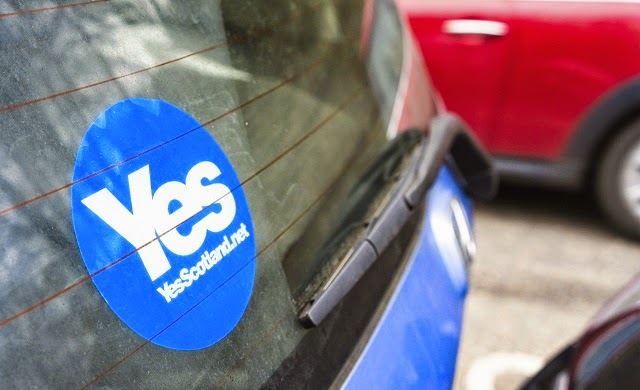It is all a matter of history now; the Scottish electorate, in the end, decided to stay within the safety of a 300 year old union. But what would have happened to the motor trade had the Scots voted in favour of independence? It is a matter of conjecture perhaps, but given the way the financial markets both in the UK and abroad were spooked prior to polling day, here are my thoughts on how the motor trade would have been affected if the vote had been yes.
The pound and prices
If independence had been voted for, the pound would have been hammered on international markets. It would have lost (estimated) some 5% of its value in the first few days of trading. The first noticeable increases in prices would have been everyday items such as food shopping. In a short time interest rates would rise placing enormous strain on mortgage holders and their household budgets.
Cut backs
These price rises would have seen, within the first year, consumers cutting back on spending on items such as home improvements, car purchase and other inspirational items which they perhaps wanted to buy but did not need to buy. This is a pattern which would have been recognisable to the French, Dutch and other consumers all of whom were trapped when the Euro was introduced.
However, for companies which sell used cars in Inverness, Glasgow, Edinburgh or Perth, the worst would still be waiting round the corner. As a result of the potential for losing the official use of the British pound, inflation of a new, untested currency would have caused the price of second hand vehicles to rocket.
The only vehicles which might have escaped the carnage would be nearly new vehicles; these tend to hold their prices well, but of course the upward pressure of inflation would have seen their prices rise artificially – good news if they could be sold. However, with consumer cutbacks foreseen, the nearly new market would doubtless suffer, although not as bad as second hand and new vehicle sales.
Hardly noticeable at first, inflation would gather momentum like a Saturn V rocket lifting off from the launch pad; combined with a squeeze on living standards unlike any seen in UK history, the effects to the car industry would have been catastrophic, with (potentially) over 50 percent of all firms engaged in selling cars going to the wall.
It is also quite possible that car manufacturing plants in Scotland would have closed as a result of the parent companies relocating them either to England, Wales or some other country within the EU.
Thankfully the potential for disaster has passed – for now. Who knows what is round the corner politically. If the Scots do eventually vote to leave the union, the path to independence will indeed be an extremely bumpy one.
Still, with fewer cars on that bumpy road, journeys to work where jobs exist will be a less exasperating one.


